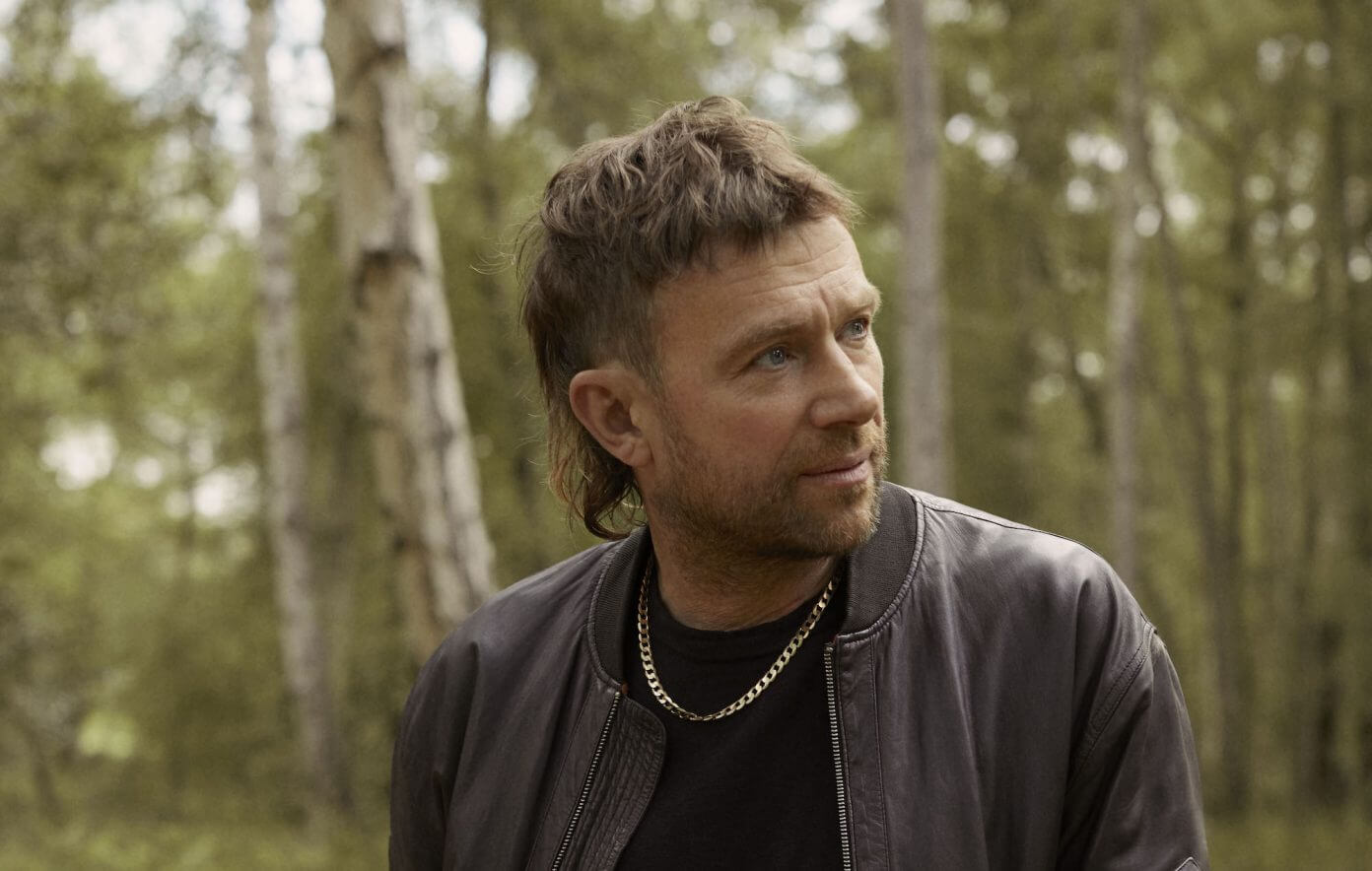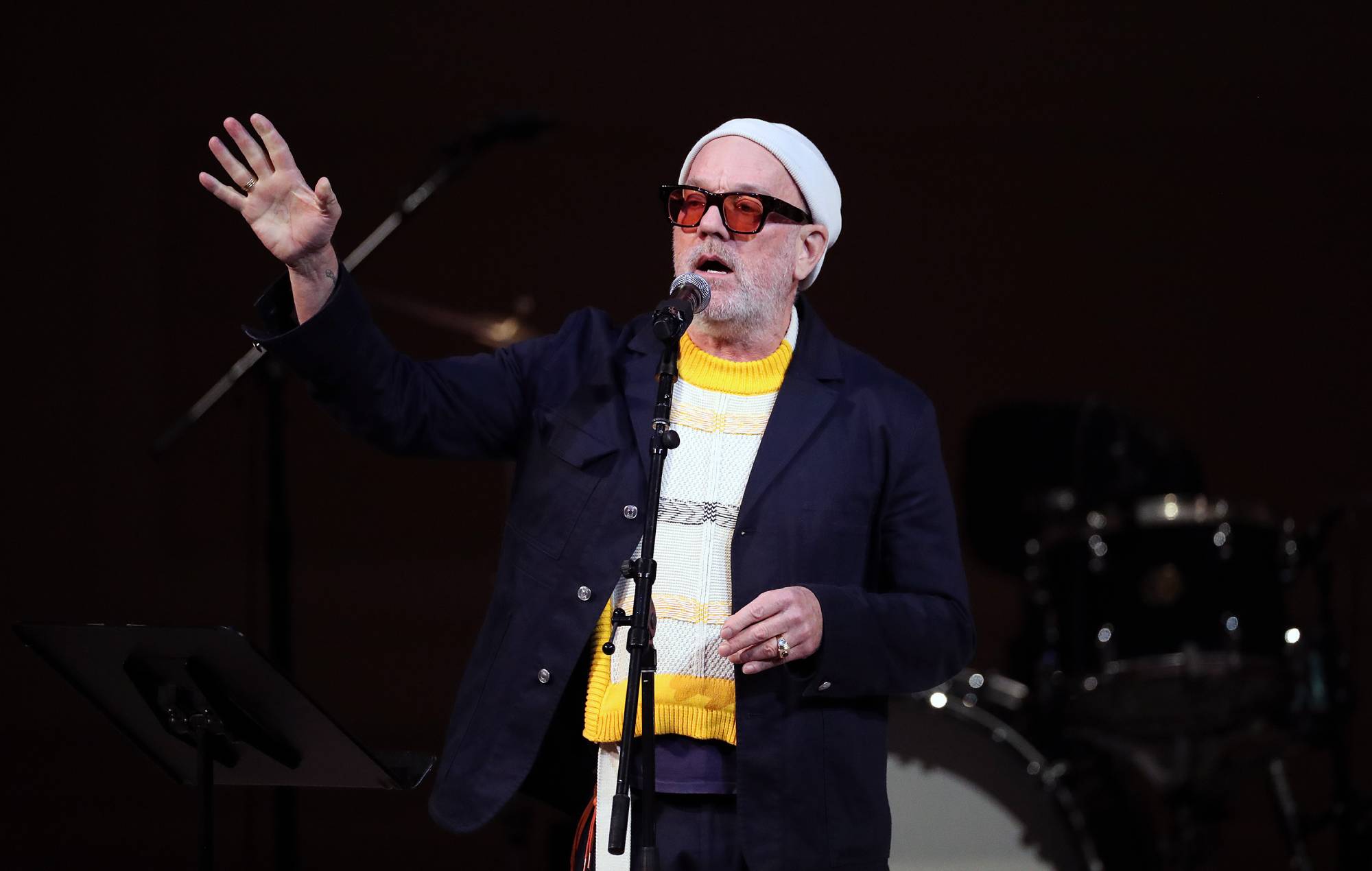
Damon Albarn‘s new solo album, The Nearer The Fountain, More Pure The Stream Flows, goes on sale today. In this interview – an edited version of which appeared in the December 2021 issue of Uncut – Albarn discusses the late, great Afrobeat drummer Tony Allen, cormorants, solar flares and an abandoned cruise ship…
- ORDER NOW: BRUCE SPRINGSTEEN AND THE REVIEW OF 2021 FEATURE IN THE LATEST ISSUE OF UNCUT
UNCUT: How much did the project change when you switched recording from Iceland to the UK in early 2020?
DAMON ALBARN: It was originally commissioned as an orchestral project so we brought some musicians over to Iceland and set up in my house, looking out at the view with the mountain Esja and we literally started playing what we saw, the landscape, the line of the mountain, the weather coming in, it came together that way. We had a tour planned, with shows in Reykjavík and all over Europe when the pandemic hit, that’s when I went back to the music and the songs emerged and an album took shape.
Do you regard John Clare as a bit of a hero? The first time I’d heard of him was when I read a column a few years ago in the Guardian by George Monbiot about John Clare as a revolutionary working class proto-environmentalist…
It was actually my mum who introduced me to him. She said, ‘I think you’ll like this guy, he’s got this very interesting history. He’s a working-class poet in the 19th century, who was very into nature and allusions… and then he had this period where he checked himself into a retreat, because of mental health problems.’ So he always fascinated me and I always really enjoyed reading his poems. And this particular poem really struck a chord with me, especially after my dear friend Tony Allen passed away last year. I started looking at the poem in the context of what I was doing, as opposed to just this beautiful line which inspired me when I was looking out of my window up in Iceland. This was always going to be the tune that set the tone of the record. The track “The Nearer The Fountain More Pure The Stream Flow”s is an adaptation of a poem by John Clare called Love And Memory, but the title of the song and the album is taken from a line in the poem.
How much of an influence is the Devon countryside on this album?
One track on the album, “The Cormorant” is probably my favourite thing I’ve ever done. I recorded it just as a vocal, sitting on a beach, watching this cormorant, who comes at about 4.30 every day when the sea’s calm enough to do a bit of fishing. It always does it the same way: it starts one end, goes that way and then comes back. It’s never any other way. Sometimes it’s accompanied by a couple of seals, and it’s just a lovely thing that happens at the same time every day, and I’ve got to know them. And there’s this buoy near my place on the South Coast, over the years, I’ve slowly summoned the courage to swim out to it – because I’ve always been scared of deep water. The buoy is called Ebony Rose, which is named after the boat whose lobster pot is attached to it. And the first time I swam out there, it really was something I had to overcome. So I started swimming out regularly every day to this buoy during lockdown – but the currents are very unpredictable, because where I live, the English Channel directly meets the Atlantic. I’ve had a few scary moments when I’ve made it out there and then, ‘Right, I’m going to start swimming back now,’ and then, ‘Oh, this is going well,’ but then I look back and I haven’t moved – it’s still right behind me. So, it’s about this beach that’s been part of my life for 25 years. For a little while, there was a cruise ship that was parked out and it had lights on at night and I just sort of imagined it being the last party on Earth out there. The point is – I think – that if you look at the same space for long enough, it reveals everything.
The idea of “particles” seems to be a recurring motif throughout the album’s lyrics. What are these “particles”?
Particles starts from a moment I had where I went outside in Iceland and it was just a beautiful, clear November or December night, and I closed my eyes and I went, “Oh, I really wish the Northern Lights would appear” and I opened my eyes, and there they were! It was one of those ridiculous moments. But prior to that, I had been on the plane, going up there, and I sat next to this lovely little, very small woman, an American woman, and she started talking to me. She was a rabbi from Winnipeg and we had a fantastic conversation. I said, ‘Why are you coming up here?’ and she said, ‘I’m trying to escape the particles.’ I asked her what she meant and she said, ‘Well, they’re coming for us, they’re on their way, and there’s nothing we can do about it – so I’m coming up here to try and get away from them.’ Then we started talking about Trump and she said, ‘Don’t worry. Don’t worry about the particles. They’re here to stir stuff up, like Trump, he’s here to mess stuff up. In himself, he’s of no value, but he’ll stir stuff up and positive stuff will come out of that.’ So I suppose I sort of meditated on that idea of particles. I wanted to understand more about why we have Northern Lights. I found out that the phenomenon of the Northern Lights is solar winds that come at certain times, from solar flares, and the moment that they hit the Earth’s atmosphere, they die, but you get this chemical reaction – an atomic reaction – which results in this incredible spectacle. And that seemed to me an important note to end on. If change is necessary, and sometimes devastating, we have to try and pull back and wait for beauty to follow. We’re all in fear of particles, we’re all wearing masks to avoid other people’s particles, and pass our own particles, but, you know, they are joyous nonetheless, because anything where change happens is necessary and part of the what the universe is all about, those kind of extremes.
Tell us about the idea of the album being made on an abandoned cruise ship…
As the refrain on “Darkness To Light” came together it acquired this sort of strange energy. It’s like the return of the empty cruise ship that I was imagining in “The Cormorant”. Simon Tong, Mike Smith and me – we were the band playing on the empty cruise ship, and that’s one of the songs we’re playing on it.
Do you regard this as a mournful record?
It’s not a morbid record, but it’s definitely aware of mortality.
The Nearer The Fountain, More Pure The Stream Flows is available from Transgressive Records






